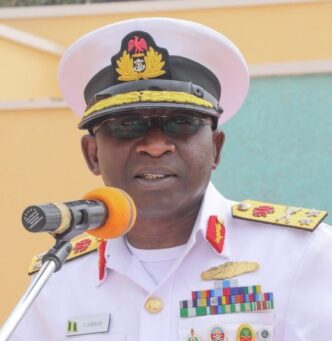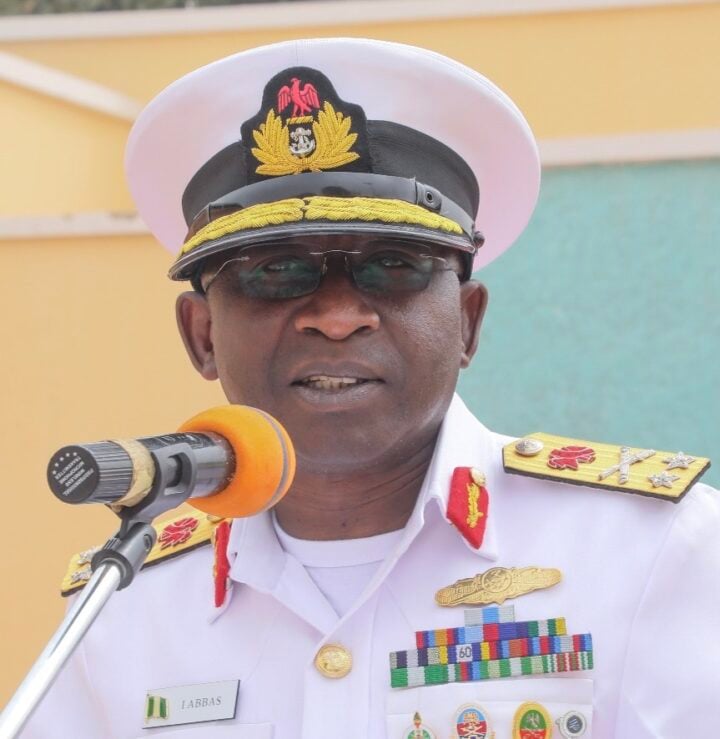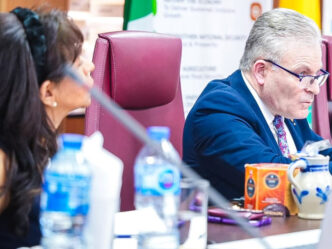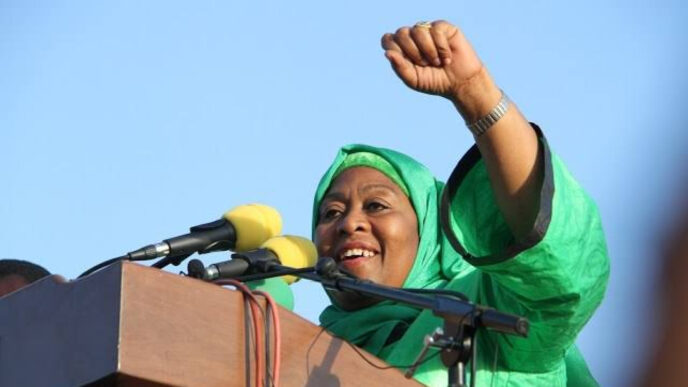The Chief of Naval Staff, Vice Admiral Idi Abbas, has dismissed proposals for the creation of a separate coast guard, arguing that such a move would duplicate the functions of the Nigerian Navy and waste resources.
Gatekeepers News reports that speaking during his Senate screening, Abbas said the Navy already performs coast guard duties and urged that available funds be redirected toward strengthening naval operations.
“We don’t need a separate Coast Guard because the Nigerian Navy already performs those functions. Creating another agency would only duplicate efforts. It’s better to channel those funds toward boosting naval operations,”
— Abbas told lawmakers.
He disclosed that the Navy had recently established a Special Operations Command in Makurdi, Benue State, to enhance security along inland waterways connecting Benue and Lokoja, as part of efforts to secure internal maritime routes.
Abbas outlined plans to integrate drones and artificial intelligence (AI) into naval operations to combat oil theft, piracy, and other maritime crimes, particularly in the Niger Delta and coastal regions.
“We will incorporate more technology, including the use of drones, to tackle maritime crime. A lot of resources are currently wasted fueling boats to reach remote areas. Technology will help us respond faster and more effectively,”
— he said.
He explained that the adoption of technology would modernise surveillance, reduce fuel costs, and improve response times, complementing traditional patrols with digital and remote monitoring systems.
According to Abbas, AI-driven tools and drone surveillance would help detect and prevent oil theft, illegal bunkering, and other economic crimes — thereby plugging leakages in the petroleum sector.
“Some of our patrols do not yield expected results because of the nature of the terrain, and resources are often wasted on fuel. Using drones will allow us to monitor these areas more effectively,”
— he added.
Responding to questions from Senator Olamilekan Solomon, Chairman of the Senate Committee on Appropriation, Abbas said most oil theft occurred in hard-to-reach creeks and coastal areas, noting that even small-scale thefts had significant cumulative impacts.
He revealed that the Navy was already curbing the use of offshore tankers for transporting stolen crude and implementing digital tracking systems to monitor vessel movements in Nigerian waters.
Abbas also commented on the military’s deradicalisation programme for repentant criminals, describing it as a positive step but calling for compassion toward victims’ families.
“Deradicalising repentant criminals is a good idea, but we must also think of the moral burden. Families who lost loved ones to these criminals should be consulted before amnesty is granted,”
— he said.
Reaffirming the Navy’s commitment to its Total Spectrum Maritime Strategy, Abbas said the framework addresses the full range of maritime security threats, from piracy and oil theft to smuggling and kidnapping.
“The challenges we face cannot be solved by the military alone. It requires a whole-of-society approach. We must synergise across the armed forces and with civil institutions to make Nigeria safer,”
— the Naval Chief concluded.











